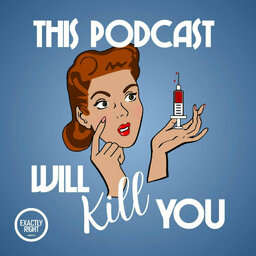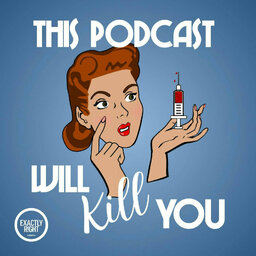Ep 139 Supplements: “This statement has not been evaluated by the FDA”
Does it seem like the supplement section of your grocery store gets bigger every time you go in? Or that all television commercials these days seem to be advertising dietary supplements that promise to improve your concentration, help you lose weight, make you happier, healthier, smarter, stronger, cooler, poop better or some mix of those? You’re not imagining things. The explosion of the US dietary supplement industry over the past few years is very real, and when you’re inundated with ads for supplements everywhere you turn, it can be very difficult to navigate whether these things actually do what they say and how much they’re allowed to say without actually doing anything. That’s where this episode comes in. We take you through what supplements actually are, how their regulation in the US has changed over the past century, what dietary supplements can and cannot claim on their label, and how the supplement market has fared since the Covid pandemic (spoilers: it’s thriving).
In 1 playlist(s)
This Podcast Will Kill You
This podcast might not actually kill you, but Erin Welsh and Erin Allmann Updyke cover so many thing…Social links
Follow podcast
Recent clips

Ep 201 Poop Part 2: Flushed away
1:21:53

Ep 200 Poop Part 1: How the sausage gets made
1:11:55

Special Episode: Nicola Twilley & Frostbite
1:00:02
 This Podcast Will Kill You
This Podcast Will Kill You